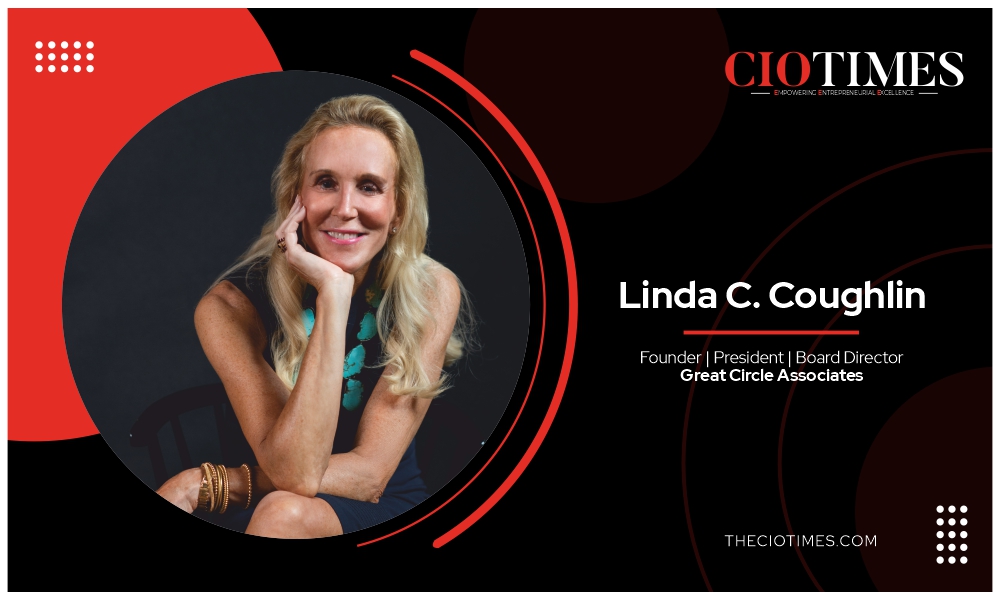Currently serving as the Vice President of External Affairs at Cornerstone Alliance, Christina Frank is a visionary leader in the field of economic development, with a steadfast commitment to fostering community growth and enhancing quality of life, Christina has been instrumental in implementing comprehensive communications and public relations initiatives that elevate the organization’s profile and strategically position the community for economic advancement.
Her educational background in economic development and non-profit management, combined with her professional affiliations with the International Economic Development Council, underscores her expertise in the sector. Christina’s distinction as a Certified Economic Developer (CEcD) places her among an elite group of professionals, being one of only 17 women in Michigan to actively hold this prestigious designation.
Keeping Society at the Heart
Christina’s background is actually in social work. She began her executive level chapter of her career working for Big Brothers Big Sisters when she took over an Executive Director position just six months shy of her 30th birthday. She was with that organization for several years, before joining Cornerstone Alliance in the fall of 2016.
Recognized as a Top 50 North American Economic Developer for 2022, Christina’s innovative approach and dedication to inclusive growth have earned her nominations from peers and industry consultants alike. Christina’s philosophy is rooted in the belief that economic development should be inclusive, fostering diversity in thought and creativity in strategy execution. Her efforts are not only geared towards attracting businesses and talent but also ensuring that every community member feels a sense of belonging and contributes to the collective prosperity.
Outside of her professional endeavors, Christina is passionate about creating innovative programs that advance local residents’ careers and positively impact their lives. Her leadership extends beyond economic strategies to encompass a vision where Southwest Michigan is celebrated for its robust economy, scenic beauty, and welcoming community.
The Company
Cornerstone Alliance is the leading non-profit economic development organization dedicated to the growth and prosperity of Michigan’s Great Southwest. It focuses on increasing employment opportunities, private sector capital investments, and the local tax base, particularly in economically distressed areas. The organization is known for its investor-governed structure and its commitment to delivering customer-focused economic development solutions through strategic partnerships.
Their services are multifaceted, including assistance with business expansion initiatives, programs to help retain businesses, and support for issues that enhance the area’s economic competitiveness. Through strategic initiatives and collaborative partnerships, Cornerstone Alliance drives innovation and opportunity, positioning the region for sustainable economic success. As the leading advocate for the local business and development sector, Cornerstone Alliance delivers tailored business assistance across Berrien County, Michigan.
In 2022, Cornerstone Alliance reported impressive key results, with 19 new business starts and a capital investment of $54.3 million. The organization’s success is a collective effort, supported by many who share a common goal of strengthening the community’s economic foundation. With a strong history and reputation, Cornerstone Alliance continues to open doors to opportunities for growth and expansion in Michigan’s Great Southwest, benefiting not just the businesses but also the residents who live and raise their families in this welcoming community.
Gaining from Challenges
Christina’s working style can be summed up as collaborative and innovative. She believes in fostering an environment where ideas are freely exchanged, and teamwork is emphasized. She thrives on open communication and encourages her team members to voice their opinions and contribute their unique perspectives.
The biggest challenge she faced in her career was pretty early on when transitioning from a technical role to a leadership position. Moving from executing tasks to guiding and managing teams was a significant shift that required a whole new set of skills and mindset.
One of the most important lessons that Christina learned from this experience was the importance of empathy and emotional intelligence in leadership. Understanding the needs and motivations of her team members allowed her to better support and empower them to achieve their goals. She also learned the value of delegation and trust, realizing that she didn’t need to do everything herself and that it was okay to rely on others to deliver results.
Empowering People
Christina is the architect behind the FLEX (Female Leadership Excellence) initiative, a panel discussion series led by influential women executives aimed at accelerating career and personal development for women in business. In both her personal and professional life, she is a champion for lifting others and believes strongly that everyone’s voice should be heard.
“So often, we only look as far as someone’s title, or accolades, but we miss the lessons and the connections by doing so. To truly know someone and to be inspired by them, you must know their story – their struggles, and their successes. We are surrounded by people who have achieved incredible successes, but not without struggle and sacrifice. The more we share our stories, the more connected we become. Relationships, human connection, and being seen and heard…. are powerful things that create motivation and drive. There is an unstoppable-ness that occurs when someone sees themselves in someone who has achieved great success,” she says.
FLEX serves as a catalyst for career advancement and leadership excellence among women in business by offering a supportive community, valuable resources, skill development opportunities, and advocacy for gender equality. By harnessing these resources and support systems, women can accelerate their career trajectories and make significant contributions as leaders in their respective fields.
Growing with the Latest Trends
The growing use of automation across all industries is a significant trend that’s reshaping how businesses operate. Automation involves the use of technology to perform tasks or processes with minimal human intervention. It encompasses a wide range of technologies, including robotics, artificial intelligence, machine learning, and software automation.
Overall, the growing use of automation across industries represents a fundamental shift in how work is done. By leveraging technology to automate tasks and processes, businesses can achieve greater efficiency, agility, and competitiveness in the modern marketplace. Cornerstone Alliance, like many economic development organizations, is increasingly leveraging the power of technology to enhance its effectiveness and efficiency in several ways:
- Data Analysis and Visualization: Technology enables economic development organizations to collect, analyze, and visualize vast amounts of data related to demographics, labor markets, industry trends, and economic indicators. By harnessing advanced analytics tools and techniques, these organizations can gain valuable insights into local economies, identify growth opportunities, and make data-driven decisions to attract investment and foster economic development.
- Digital Marketing and Outreach: Economic development organizations utilize digital marketing strategies and online platforms to promote their regions, attract businesses, and engage with stakeholders. From social media campaigns to targeted email marketing, technology enables these organizations to reach a broader audience and showcase the unique advantages of their communities to potential investors, businesses, and entrepreneurs.
- Business Intelligence and CRM Systems: Economic development organizations leverage business intelligence (BI) and customer relationship management (CRM) systems to manage relationships with stakeholders, track leads and opportunities, and measure the impact of their economic development efforts. These systems enable organizations to streamline processes, improve collaboration, and provide personalized support to businesses seeking to relocate or expand within their regions.
- Virtual Site Selection and Tours: With the rise of virtual reality (VR) and augmented reality (AR) technologies, economic development organizations can offer virtual site selection tours and immersive experiences to prospective investors and site selectors. These virtual tours allow stakeholders to explore available properties, infrastructure, and amenities remotely, saving time and resources while still providing valuable insights into potential locations.
Fostering Inclusivity
As a Certified Economic Developer, Christina believes that an inclusive and welcoming community is crucial for attracting businesses, workers, and residents. Strategies that she thinks are important to fostering an inclusive and welcoming community include things like Affordable Housing Initiatives; Quality of Life Enhancements; and Small Business Support. Along with other things like Promoting Culture and Arts, Community Engagement, and Diversity and Inclusion Initiatives.
For her team, Christina’s expectation is a culture of respect and acceptance where diverse perspectives are not only welcomed but encouraged. This involves fostering open communication channels where team members feel comfortable sharing their experiences and ideas, as well as actively listening to and valuing their input.
“Overall, my approach to supporting diversity and inclusion at the workplace is rooted in empathy, accountability, and continuous learning. By fostering an environment where everyone feels valued and empowered to succeed, we can drive innovation, and creativity, and ultimately, achieve greater success as a team,” says Christina.
Maintaining Meaningful Communication
On one hand, social media provides unparalleled opportunities for instant communication and engagement with stakeholders, including clients, employees, and the public. However, it also comes with the risk of misinformation spreading rapidly, potentially damaging the organization’s reputation or causing confusion among stakeholders.
To navigate these challenges, Christina believes that it’s essential for organizations to prioritize transparency, accuracy, and responsiveness in their communication strategies. This involves establishing clear communication protocols and guidelines for the teams to follow, emphasizing the importance of fact-checking and verifying information before sharing it publicly.
Measuring Her Success and Designs for the Future
Christina measures her success by answering a few simple questions about herself – First, she asks herself if she has made a positive impact. Second, has she brought someone else along, either by inspiring, supporting them, or making a direct difference in their life? Finally, she asks herself – will this make her son proud? If her answers to those questions are all yes, then she has succeeded.
“My future plans are BIG, I am pursuing my Juris Doctor and start law school this fall. At 42 years old, with a successful career, I want to do more! I plan to get my law degree and pair it with my CEcD professional certification in the near future, then one day transition my focus to advocacy and policy change. My ultimate goal is to help those who otherwise would not have a voice in the hard-to-navigate legal system. Then, I’d like to retire in Italy and run a bed and breakfast,” concludes Christina.
A Quote to Live By:
“Anyone who knows me knows my all-time favorite saying: “Little Hinges Swing Big Doors”. For me it represents two things: 1. Attention to detail is critical, if not the most important aspect of success. 2. You don’t have to have a fancy title or be the most important person in the room to be capable of doing incredible things.”
Quote: “Cornerstone Alliance plays a pivotal role in driving efforts to attract new investment and new companies to the region, contributing significantly to the economic vibrancy of the area.”




